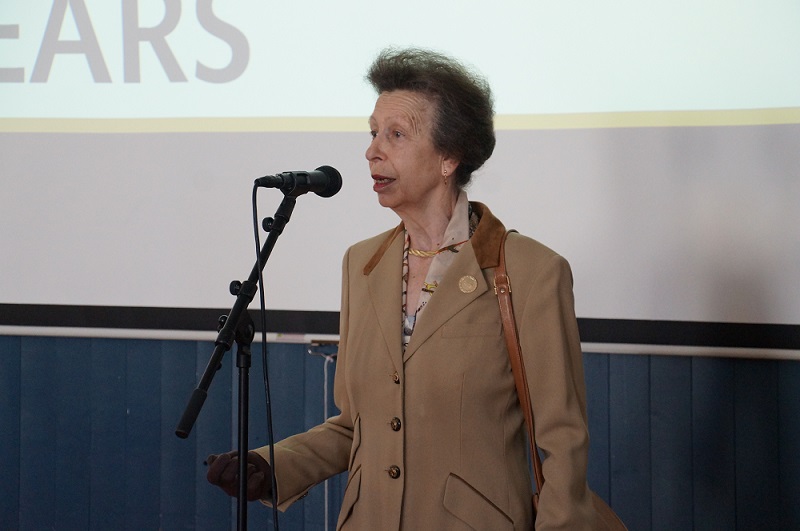
Her Royal Highness The Princess Royal today (Monday 15 September) visited the charity Victim Support to celebrate the organisation’s 50th anniversary and pay tribute to the staff and volunteers who work tirelessly to deliver vital support to victims of crime in England and Wales.
During the visit, The Princess Royal, the charity’s President, delivered a short speech before cutting the anniversary cake.
Founded in Bristol in 1974 by a group of volunteers, Victim Support, known then as the Bristol Victim Support Scheme, was the country’s first charity for victims of crime.
Dedicated volunteers began knocking on the doors of people who had recently suffered crime and with the help of a £1500 loan from the social justice charity Nacro, the Bristol Victim Support Scheme helped 500 people within its first five months.
Communities across the country were encouraged to set up their own Victim Support Schemes and in 1979 the National Association of Victims Support Schemes was born – by 1986 every county in England and Wales had at least one of these schemes.
The Princess Royal was joined by other local dignitaries including the Lord-Lieutenant of Bristol, the High Sheriff of Bristol and The Right Honourable Lord Mayor of Bristol.
Dame Helen Reeves, who became Victim Support’s first CEO after joining in 1979 said:
“I was the first national member of staff – the organisation had previously been headed by a voluntary committee. It was meant to be a career break for me, but everything moved so fast. By the time I left, Victim Support was a national institution. We were part of the brickwork of the criminal justice system. I was so proud to be part of such an important organisation.”
Francis Wakem has been a volunteer with Victim Support for over 35 years, during which time the former police chief superintendent raised more than £160,000 for the charity.
Francis said of his Royal encounter:
“It was an honour to meet The Princess Royal today and celebrate 50 years of our incredible charity.
“As a young police constable I was told that in cases of domestic abuse it is ‘only a domestic and they will sort it out themselves.’ So I began questioning – why is it always about the perpetrator? Why is it that many victims are the ones that live in fear? Victims and witnesses seemed to be walk on extras in a performance where they should have been centre-stage.
“So on retirement from the police service I looked to Victim Support to enable me to help and I’ve been volunteering ever since.”
Today, the charity helps around 140,000 people every year, offering support across a vast range of crime types including domestic abuse, sexual violence, fraud and hate crime as well as delivering support to anyone bereaved by murder or manslaughter through its flagship National Homicide Service.
Martyn, 57, was violently attacked after he intervened to stop a man from strangling a woman outside his home.
The assault left him with life threatening injuries and post-traumatic stress disorder.
He described the difference support made in his darkest days:
“I am not a victim anymore because I’ve been given back my pride and quality of life from people like Victim Support. No matter what time of day it is, or how exhausted they feel, they would be there for you if you needed them and they do everything possible to ensure that you stay alive.”
“Our family will never be able to say ‘thank you’ enough. They restored my feeling of worth which I thought had gone. People need to know that they can turn to Victim Support when the going gets horrendous.”
Katie Kempen, Chief Executive at Victim Support said:
“It was an honour to welcome Her Royal Highness to our anniversary celebrations – as our long-standing Patron, she has watched Victim Support grow into the charity it is today.
“It is truly inspiring to reflect on the many millions of victims we have helped across the course of 50 years. We look forward to continuing this legacy and providing vital, life changing support to anyone who has been the victim of crime.”
